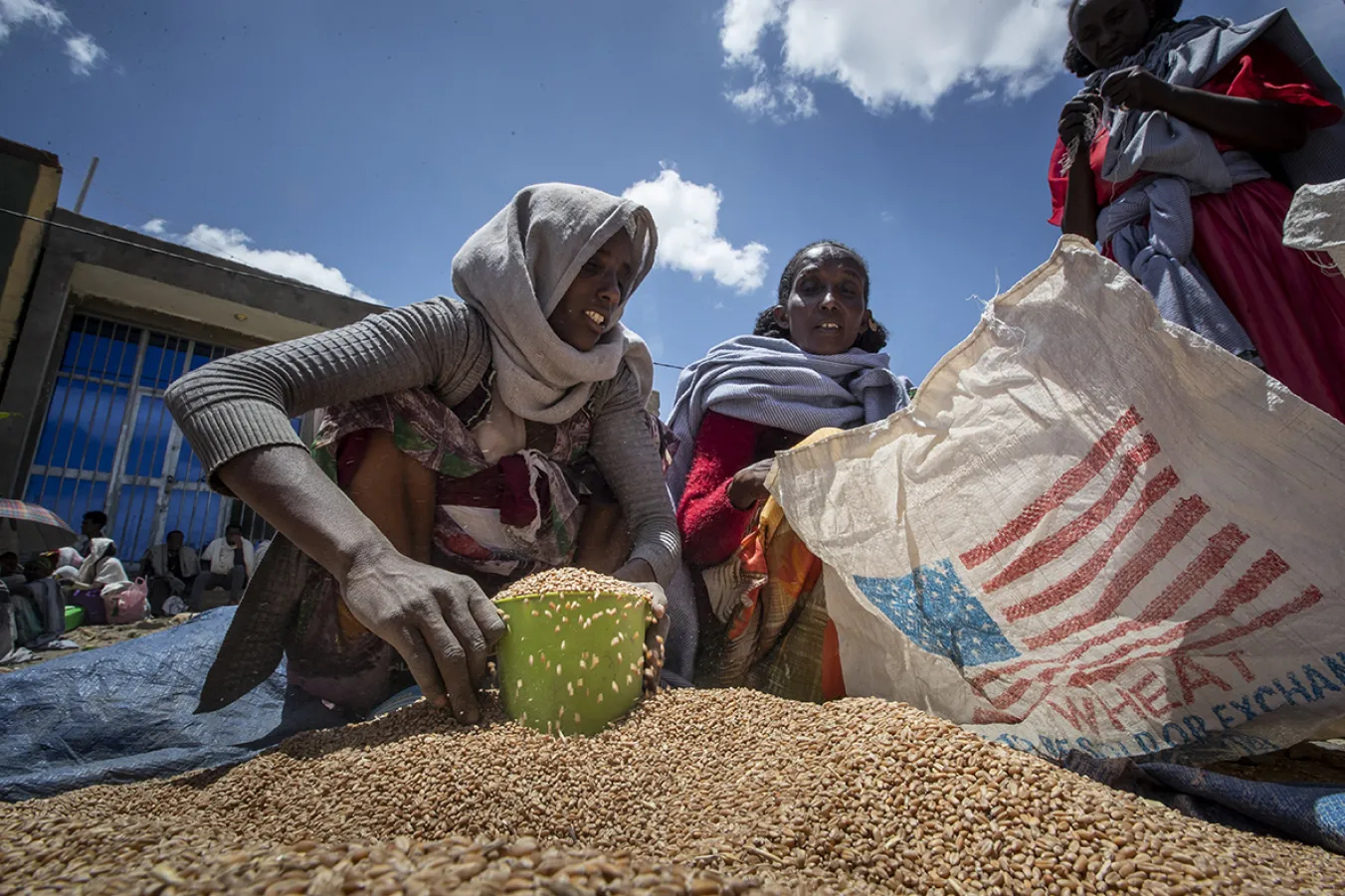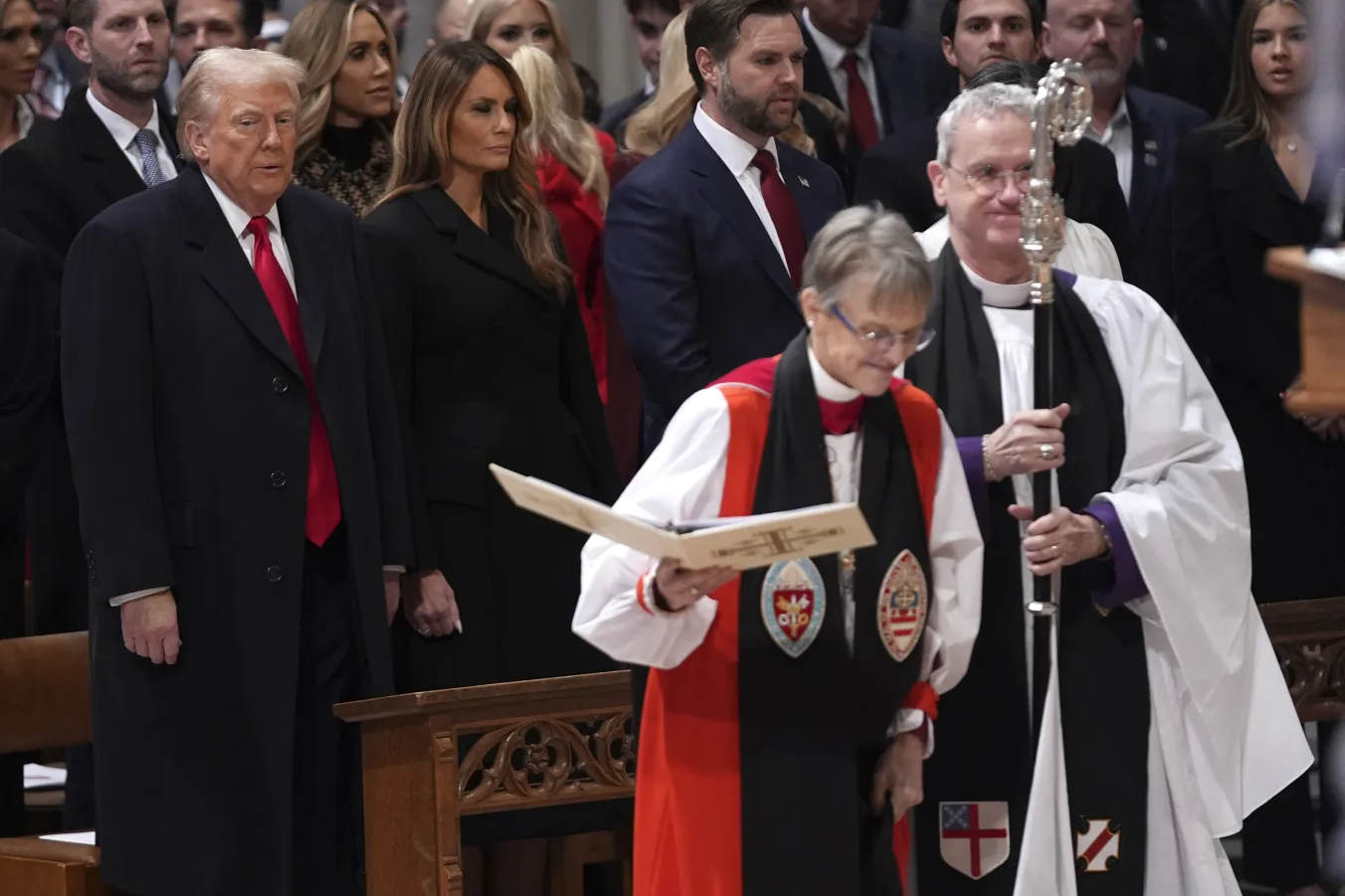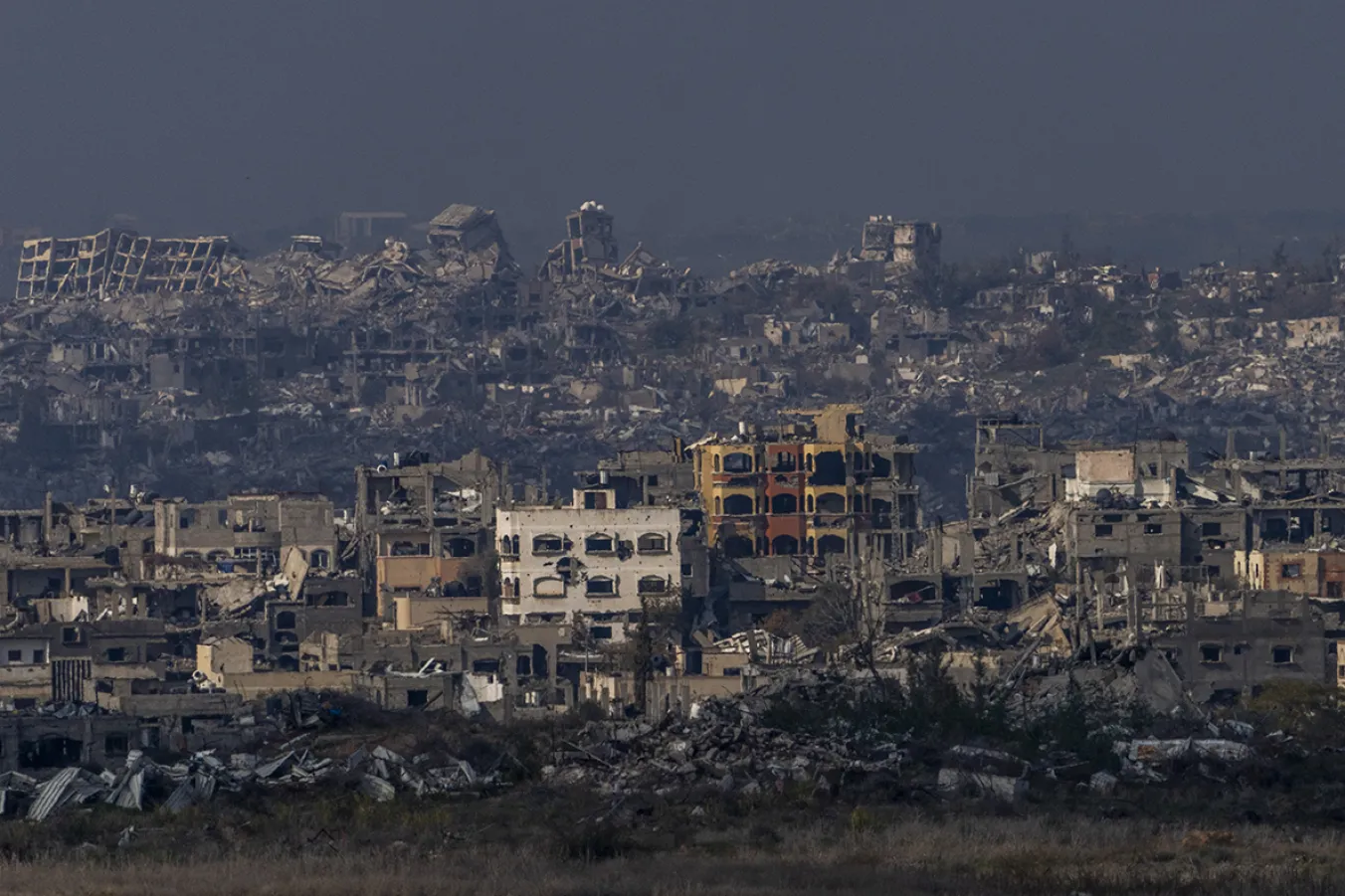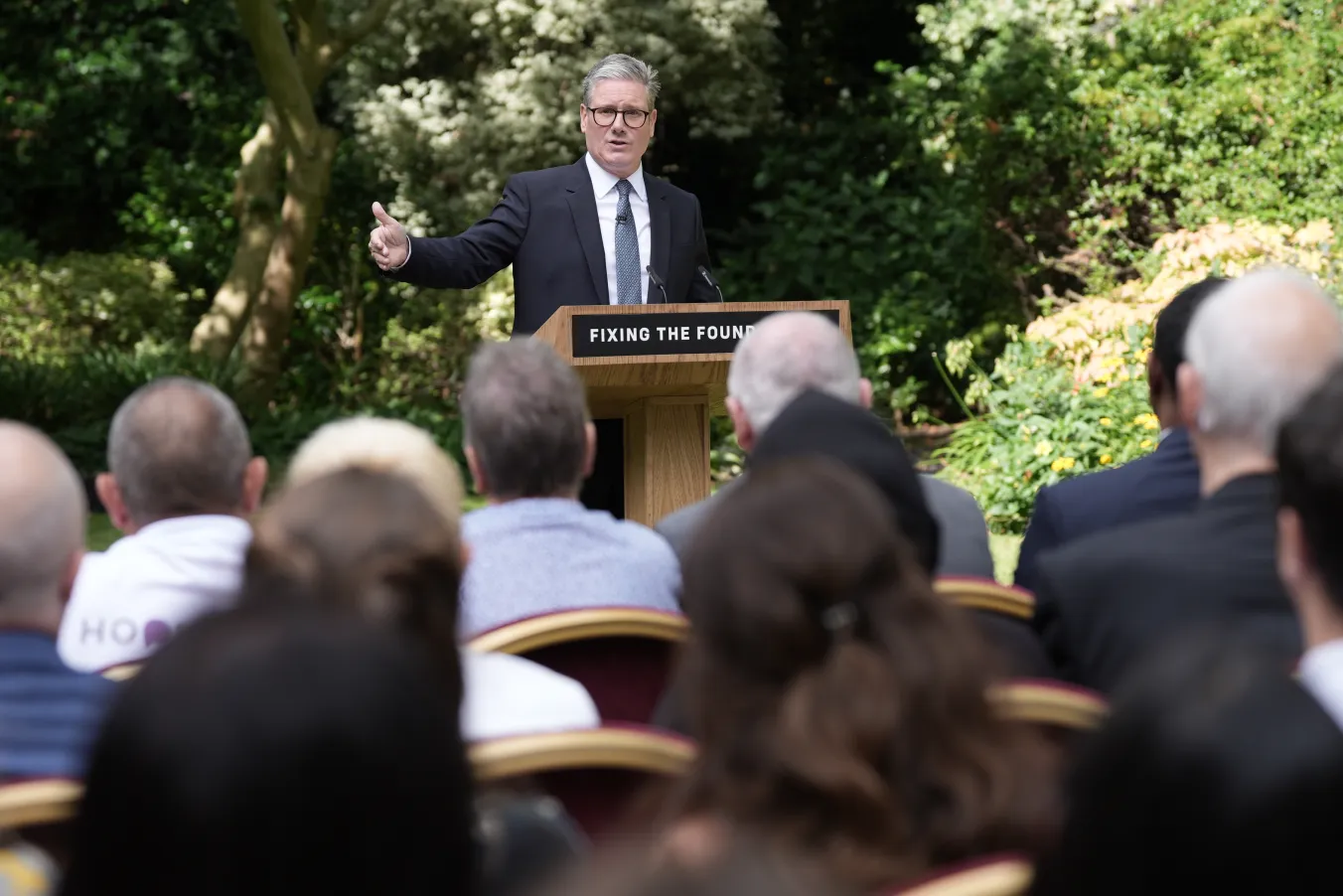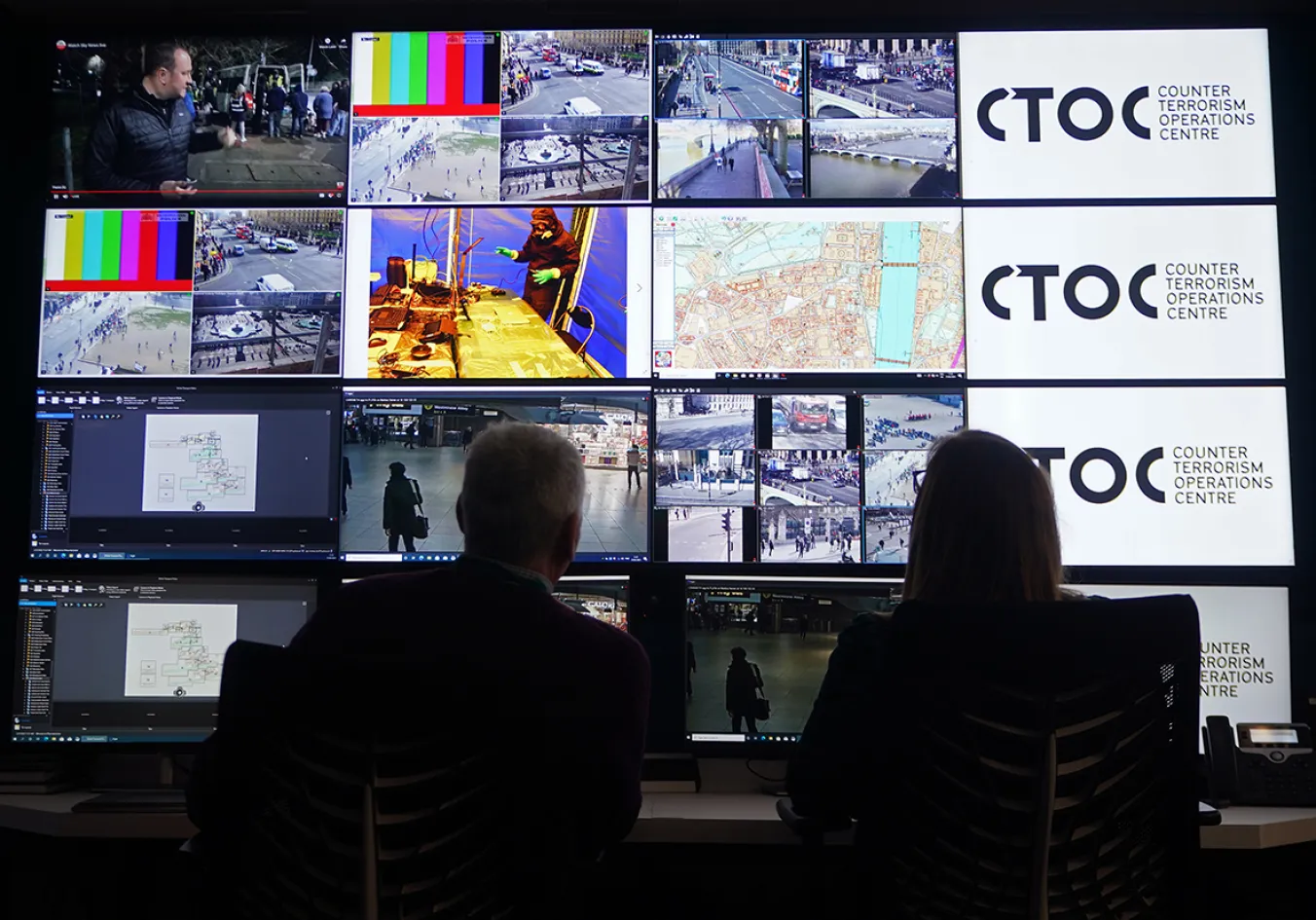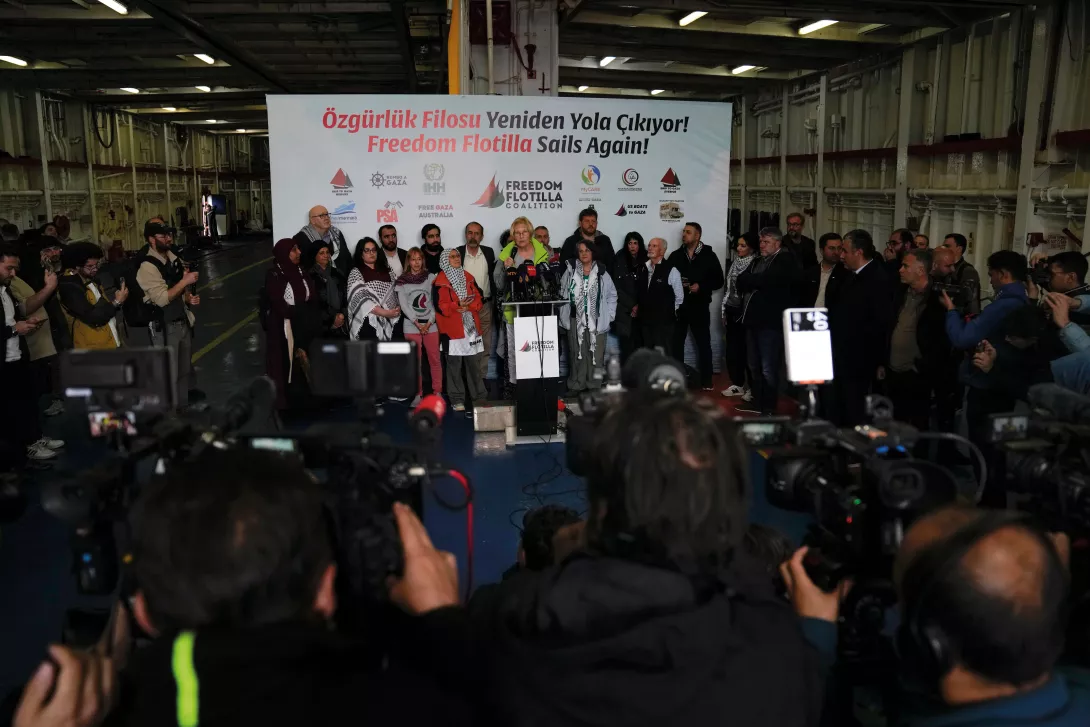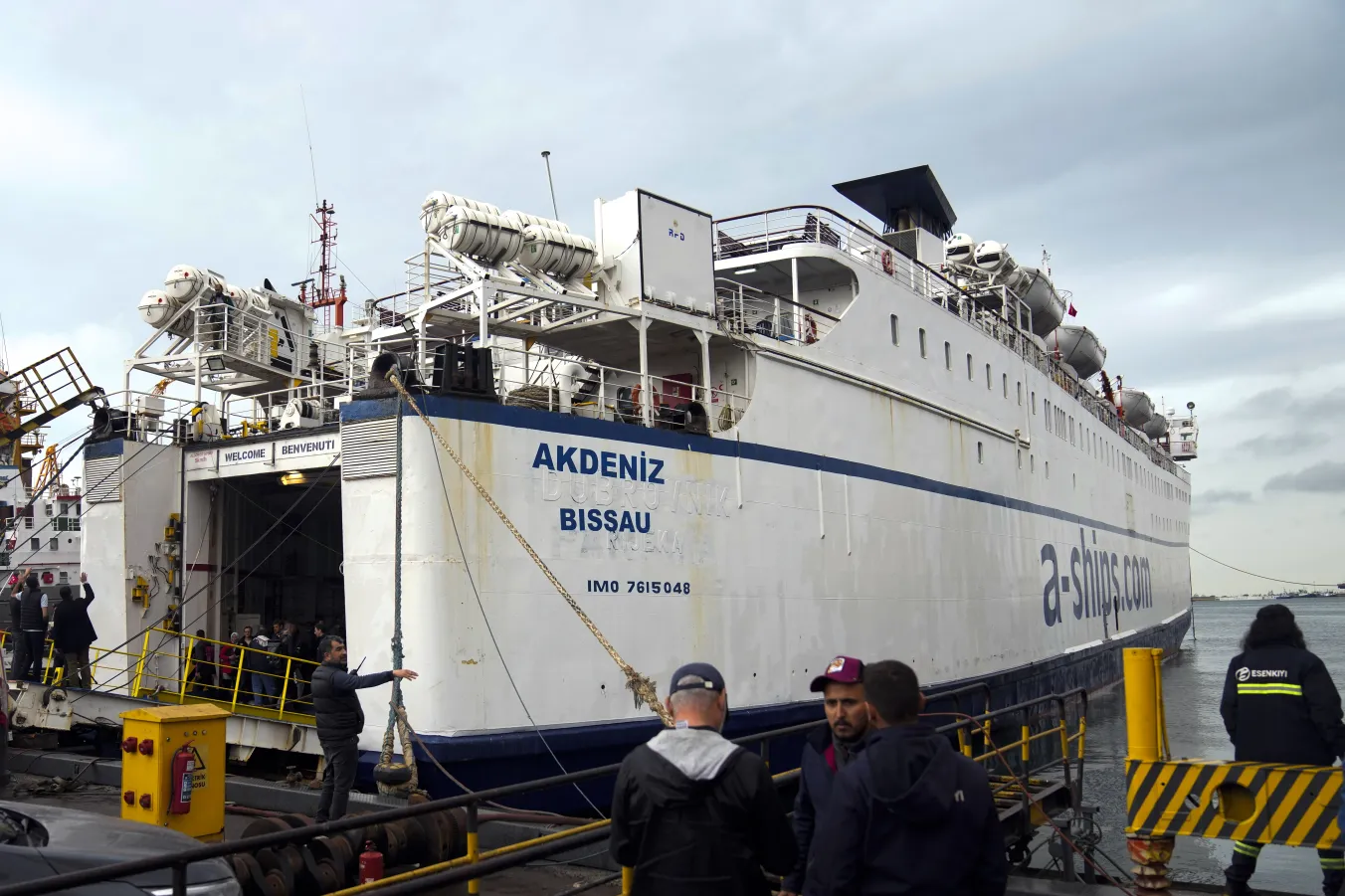
ISRAEL has successfully blocked the departure of two of the three ships bound for Gaza as part of the Freedom Flotilla, one carrying 5,500 tons of essential aid. But, say flotilla organisers, they are still determined to sail.
The Guinea-Bissau International Ships Registry unexpectedly ordered an additional inspection of the flotilla's lead ship after the two ships registered to the country, now docked in Turkey, had already passed earlier inspections. Guinea-Bissau is a country that has voted consistently for a ceasefire in Gaza.
The Freedom Flotilla, funded by the Turkish organisation, Foundation for Human Rights and Freedoms and Humanitarian Relief, has drawn hundreds of civilians and media from 40 countries.
It is attempting to break Israel’s naval blockade and deliver life-saving aid needed to alleviate the Israeli-imposed famine currently ravaging the Palestinian population in Gaza. The aid ship also contains ambulances, a fire engine and medical supplies.
But even before a second round of inspections was complete, Guinea-Bissau succumbed to Israeli pressure, say Flotilla organizers, and withdrew its flag, meaning the ships cannot legally go to sea. The decision drew a massive protest in Istanbul on Saturday.
“Searching for another country that will allow their flag to fly to Gaza is actually quite difficult,” says Sarah Wilkinson, a longtime British activist for a free Palestine who will be making her first trip to Gaza. “They are looking at South Africa, Cuba, Indonesia, but paperwork takes time,” she said when I spoke to her on Sunday from Istanbul.
Consequently, Wilkinson is among many who have chosen to return home and await the green light to sail, in part to save flotilla organisers the cost of keeping everyone in Istanbul, potentially for weeks.
“We really are up against the clock,” Wilkinson said. The delays prove “that the Israelis are not going to allow humanitarian aid into Gaza.”
Wilkinson, like many others, joined the flotilla after trying everything else. Years of protests, lobbying MPs and even non-violent direct action, “isn’t enough,” she said. “It’s too slow. We are up against this hideously fast-paced genocide.”
Should the flotilla succeed, Wilkinson is realistic about what that would mean. “We are not going to feed everyone,” she said. But it will provide hope when “the Palestinians see that people are willing to risk their lives, to reach out to get to Gaza.”
Wilkinson, like the other flotilla passengers, is well aware of the personal risk she is taking and said goodbye to family members before departing, all of whom were unhappy about her decision. “The more you say “goodbye” the more it hits you this could be a one-way journey,” she said.
Wilkinson stumbled on the Palestinian cause by chance as a 10-year-old when a pamphlet fell out of a library book she was reading. It pictured a Palestinian boy facing up to an Israeli soldier. Seeing that photo, recalled Wilkinson, who said she was a child who was “scared of everything,” was the moment she realised “that maybe as a 10-year old you can be brave.”
The connections Wilkinson has built with Palestinians over the years have fuelled her commitment but have also made it an emotional journey.
Last October, her close friend Rana Shubair, a prominent Palestinian author and, like Wilkinson, a mother of two, disappeared. Earlier this year, Wilkinson tried to reach Rafah from Cairo in an effort to find Shubair. “But I couldn’t get in,” said Wilkinson, who is banned by Israeli authorities.
Although Wilkinson hopes that Shubair is alive and in hiding, she fears the worst. “I’ve lost 12 people in Gaza,” she said. “One is buried with 39 members of his family. The other is a friend whose pregnant wife was bombed to death a couple of weeks ago.”
Wilkinson’s direct action, taken with Palestine Action, has been targeted at Britain’s outlets of Elbit, the Israeli arms and drone manufacturer.
